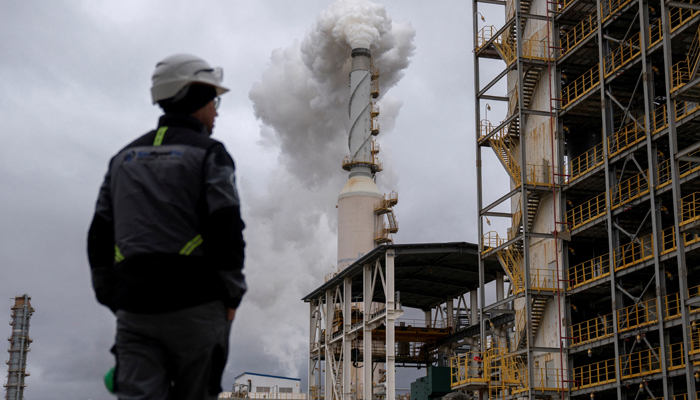[ad_1]

A new study by Singapore’s Nanyang Technological University (NTU) revealed that around 135 million people died prematurely all across the globe between 1980 and 2020, reported AFP Monday.
The university said that weather phenomena like El Nino and the Indian Ocean Dipole worsened the effects of these pollutants by intensifying their concentration in the air.
The minute particles called particulate matter 2.5, or “PM 2.5”, have adverse impacts on humans when inhaled because they easily enter the bloodstream.
These primarily come from vehicle and industrial emissions alongside fires and dust storms.
In a statement, the NTU said: “The fine particulate matter was associated with approximately 135 million premature deaths globally from 1980 to 2020.”
The study was published in the journal Environment International.
Researchers found that people were dying younger than the average life expectancy from diseases or conditions that could have been treated or prevented, including stroke, heart and lung disease, and cancer.
The findings suggest: “Weather patterns increased the deaths by 14%.”
“Our findings show that changes in climate patterns can make air pollution worse,” said Steve Yim, an associate professor at NTU’s Asian School of the Environment.
“When certain climate events happen, like El Nino, pollution levels can go up, which means more people might die prematurely because of PM 2.5 pollution,” Yim added.
“This highlights the need to understand and account for these climate patterns when tackling air pollution to protect the health of the global population.”
[ad_2]
Source link






